
Why more people are celebrating Indigenous Peoples Day PBS NewsHour
People is a collective noun. When we talk about a specific group of people, we consider it as singular and therefore, no need to add s.. Peoples is used when we talk about two or more different ethnic groups. For example, "All the 14 distinct peoples (native groups) of the continent were part of the survey". Whereas People's is not the plural form. The apostrophe ('s) is used to indicate.
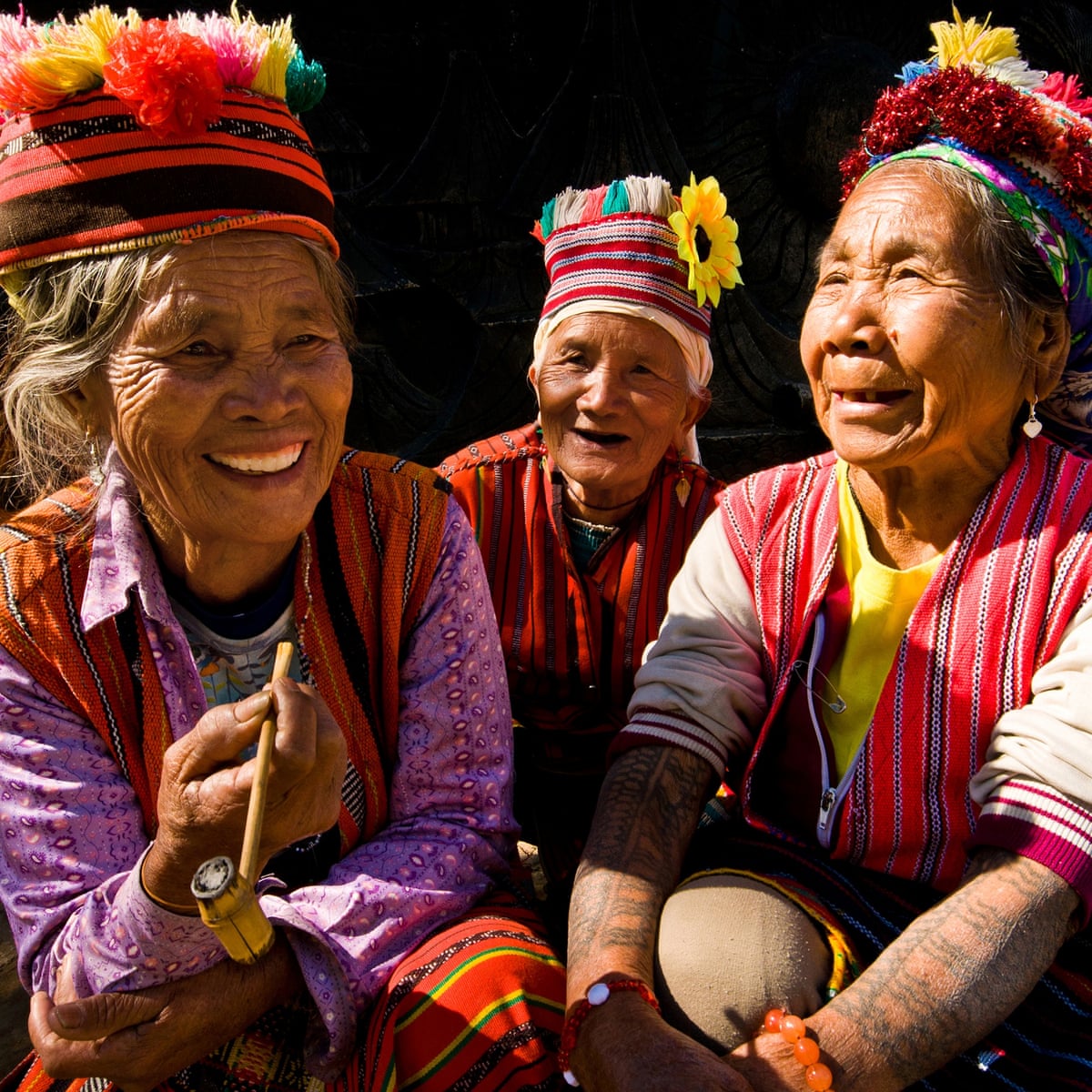
Indigenous peoples in pictures Art and design The Guardian
Peoples'. Peoples' is the plural possessive form of Peoples. When the noun already ends in "s" and we want to make the word possessive, we need to put the apostrophe after the "s". The different peoples' land is still being taken today. In this case, we are talking about different groups of people like tribes.

Torres Strait Islander peoples Culture, History & Language Britannica
The first meaning is simply the plural of person - in other words, two or more human beings. Here are two example sentences with this meaning: We met all sorts of people on the trip. (people=more than one person, in this case, probably many) My neighbors are nice people. (people=more than one person, in this case, probably just a few) However.

🎄Muppet History 🕎 on Twitter "Peoples is peoples. Thank you, Pete. 🍅 (The Muppets Take
Knowing when to use "persons," "people," or "peoples" can be confusing, especially with regard to things like identity. Learn how to use each word.

What Is Indigenous Peoples’ Day and How Is It Celebrated? The New York Times
For more info, see the Disclosure Policy. There are sometimes debates over whether peoples' or people's is the correct form of the possessive for "people.". So, which one should you use? The truth is, people's is always the correct possessive form of "people.". Let's explore why in this blog post. Singular Noun. Plural Noun.

7 Ways to (Virtually) Celebrate National Indigenous Peoples Day The Quad
Peoples is Peoples "Hey, I tell you what is. Big city, hmm? Live, work, huh? But not city only. Only peoples. Peoples is peoples. No is buildings. Is tomatoes, huh? Is peoples, is dancing, is music, is potatoes. So, peoples is peoples. Okay?" It's perhaps Pete's most famous line of dialog, and one of the best lines spoken by a non.
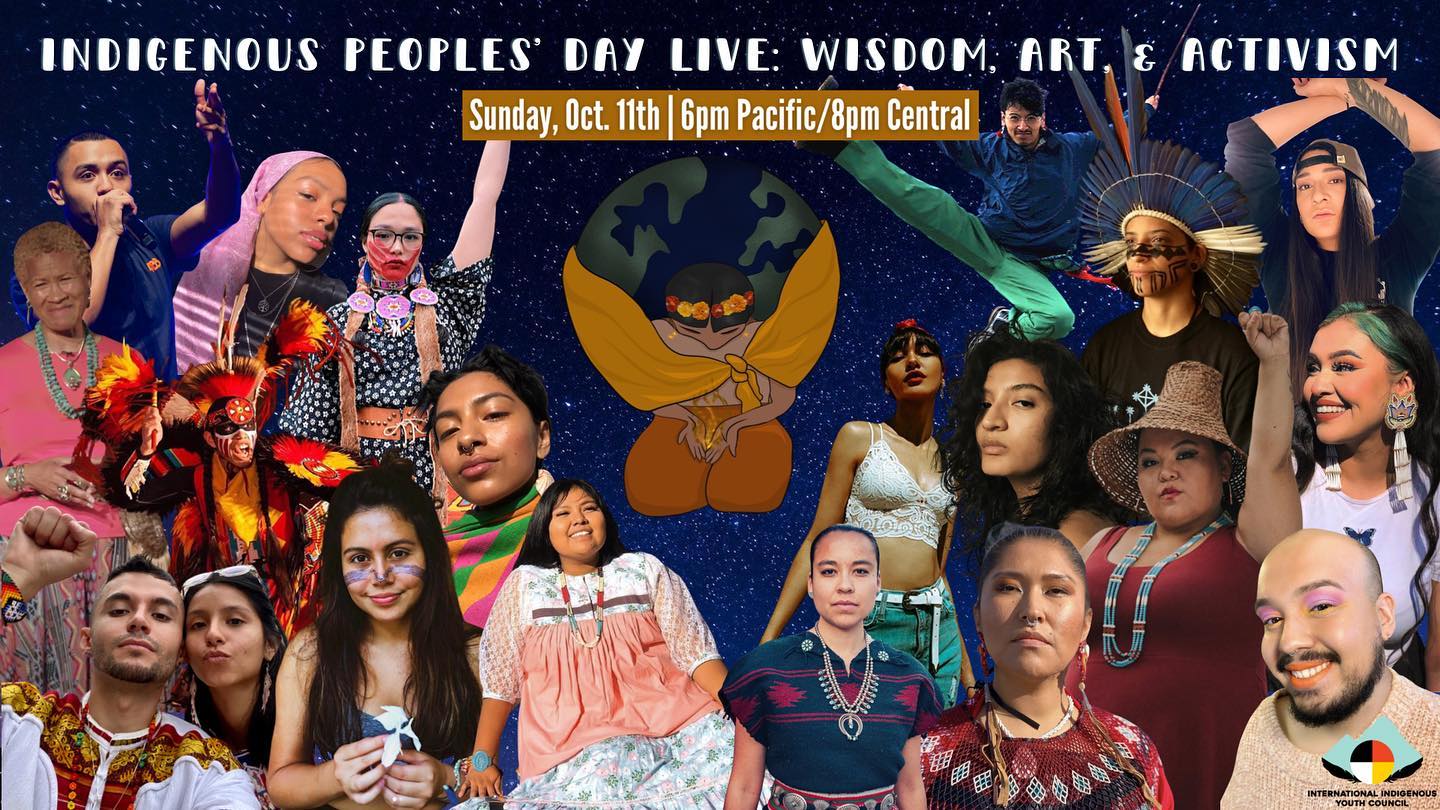
Celebrate Indigenous Peoples Day 2020 Cultural Survival
2. Peoples. The word 'peoples' is used as the plural form of people to refer to groups of people belonging to different nations, tribes, or communities.Peoples is used to distinguish between ethnic groups within the same cultural or geographical context.. Examples: The exam will focus on the cultures and peoples of the region.; Peoples from different nations participate in the Olympics.
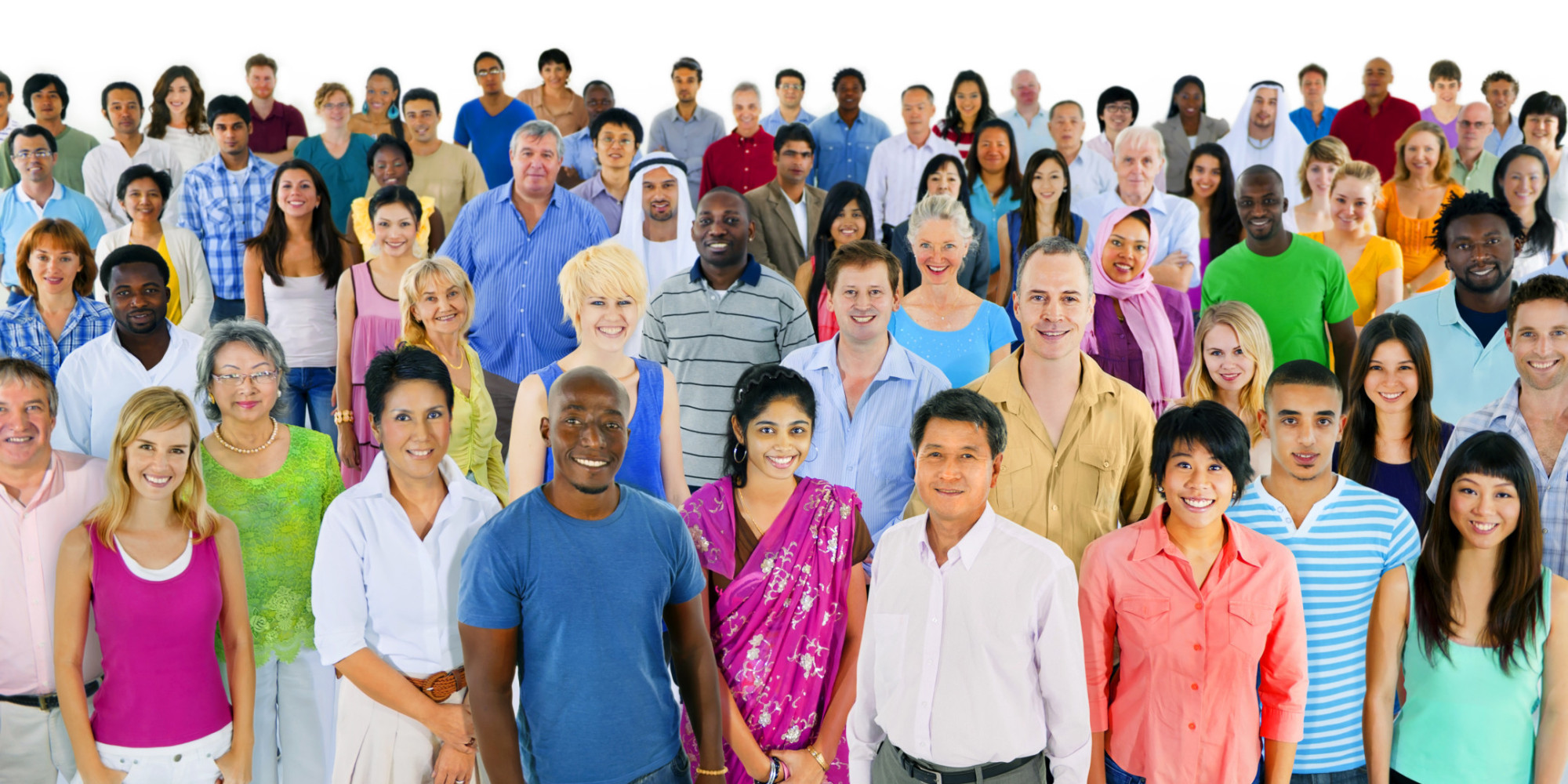
America's Largest Ignored Minority Group HuffPost
When it comes to choosing persons, people or peoples, in the vast majority of cases, the correct plural of person is people. In legal contexts, the plural persons is used. When referring to more than one distinct ethnic group, use the word peoples. Here is another trio of words that are often the cause of some confusion: There, Their and They.
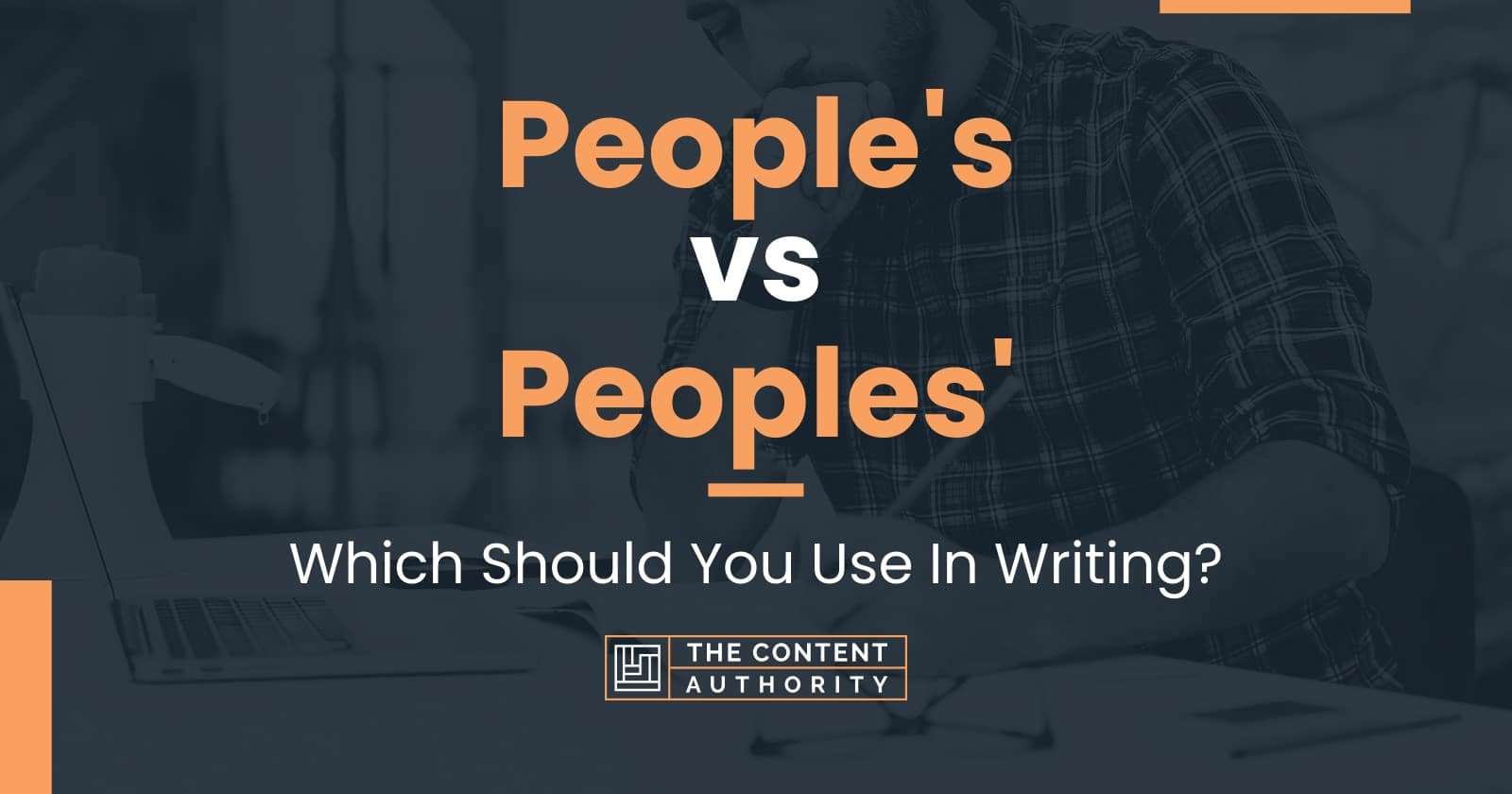
People's vs Peoples' Which Should You Use In Writing?
The word people means a collective group of human beings belonging to a particular/specific nation, community or ethnicity. The word peoples, on the other hand, means the same as 'people' but it's used to denote groups of people belonging to different communities, ethnicities, religions, nationalities, etc. Usage.
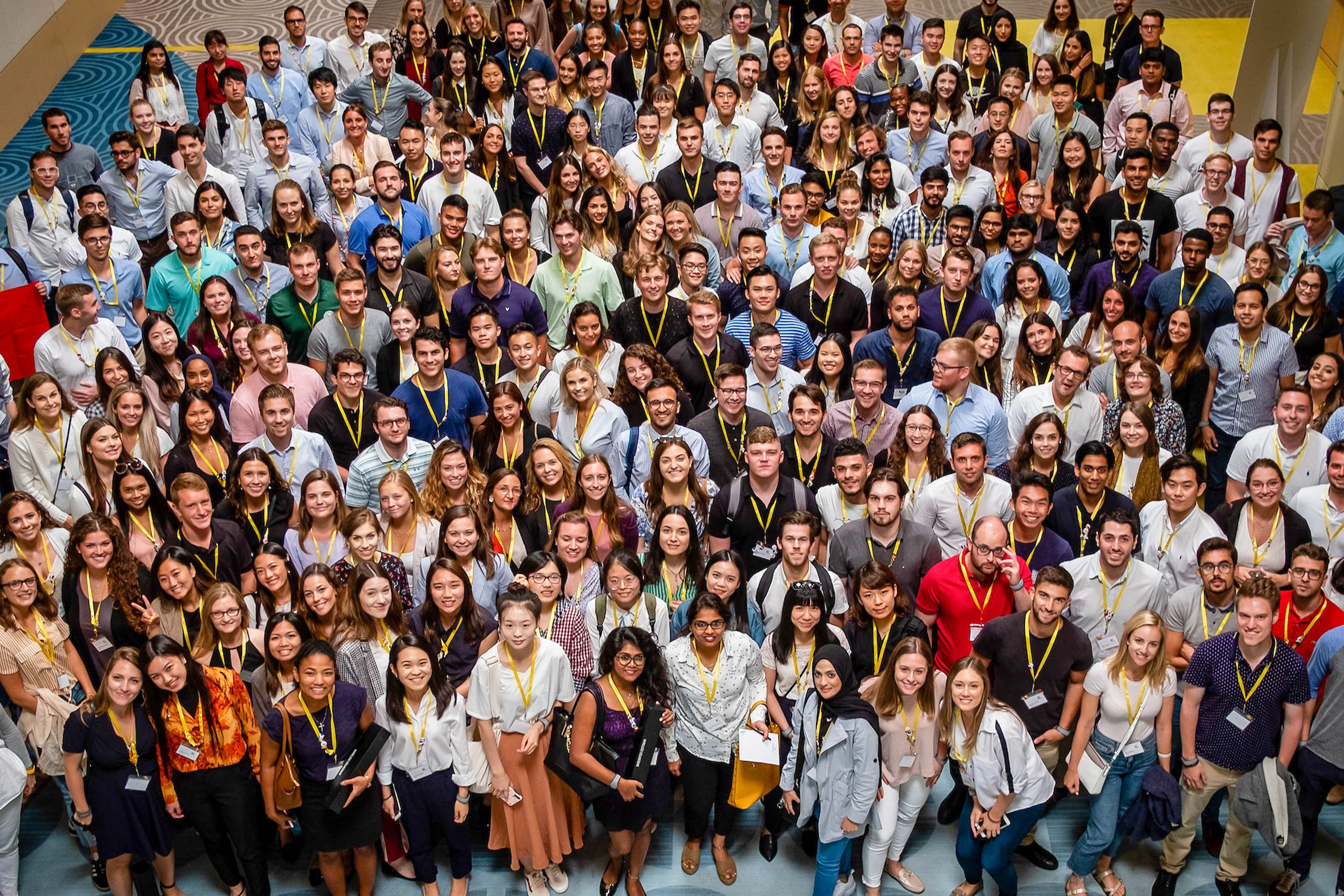
How we are creating longterm value for people
People vs. persons as plurals. Person and people both derive from Latin, but from different words. Person came from persona, which first meant "mask," like that worn by an actor, but eventually came to mean "an individual human." People, on the other hand, came from populus, which means "the people" in the sense of a group from the same nation, community, or ethnic group.

Indigenous Peoples’ Day The Unofficial, ColumbusFree Celebration The New York Times
@T.E.D.: To me, this comment is the real answer. It's short and it's clear. Every, and I mean EVERY other answer on this entire site, among all the duplicate questions, either don't give any explanation at all to justify the existence of peoples as a correct term, or they contain ambiguity that dilutes the message. (This very answer says both "pukapuka peoples" and "pukapuka people" are correct.

Indigenous Peoples in Canada The Canadian Encyclopedia
People Versus Peoples. As we've seen above, the word people is an irregular plural, which indicates the plural of the word person.We speak about one person but many people.Consider this example: The person who brings us food in a restaurant is called a server.; The people who bring us food in a restaurant are called servers.; You can see that in the first sentence, there is only one server.

Best Practices for Working with Different Cultures in the Workplace NYC Office Suites
When "People" is used as a singular noun, "People is" can be a Singular Noun Phrase and "Peoples are" can be a Plural Noun Phrase. • The phrase " people is " can be used as a singular noun phrase when it refers to everyone within a specific nation, civilization, ethnic group, or tribe as a single unit. In these cases, we can say.

banner diverse group of people 2 Washington State Hospital Association
Jan. 4, 2024, 9:38 a.m. ET. A fraught battle to build long-sought student housing at the storied People's Park in Berkeley, Calif., took an extraordinary turn early on Thursday when hundreds of.

Crowdsourcing the great advertising agency debate Media Network The Guardian
Furthermore, the possessive of peoples is peoples'. It did not end with peoples's because of the apostrophe rule. The additional 's' remain pseudo. Peoples' or people's. Both the words Peoples' and People's are correct in their own variation and rule. When you are referring to a group of some person, you definitely cannot use.

Indigenous Peoples’ Day The Unofficial, ColumbusFree Celebration The New York Times
Other than in this specific context, "people" always refers to more than one human being. The singular form of "people" is usually "person," which is a count noun. A count noun is, by definition, one that we can count. Generally, any nouns that have a plural form are count nouns. Non-count nouns or mass nouns include things like.